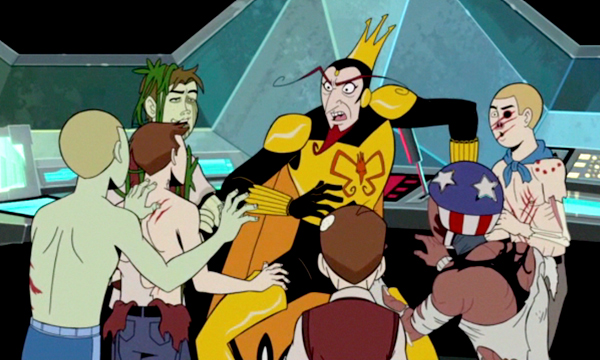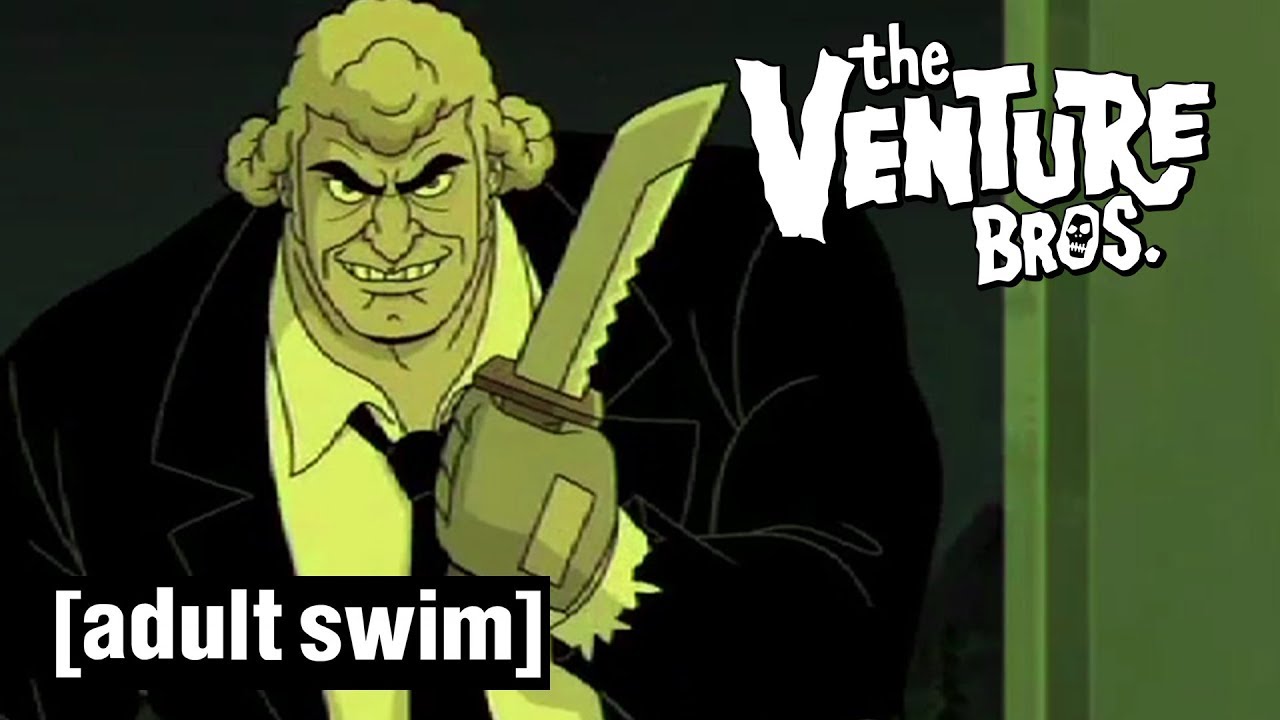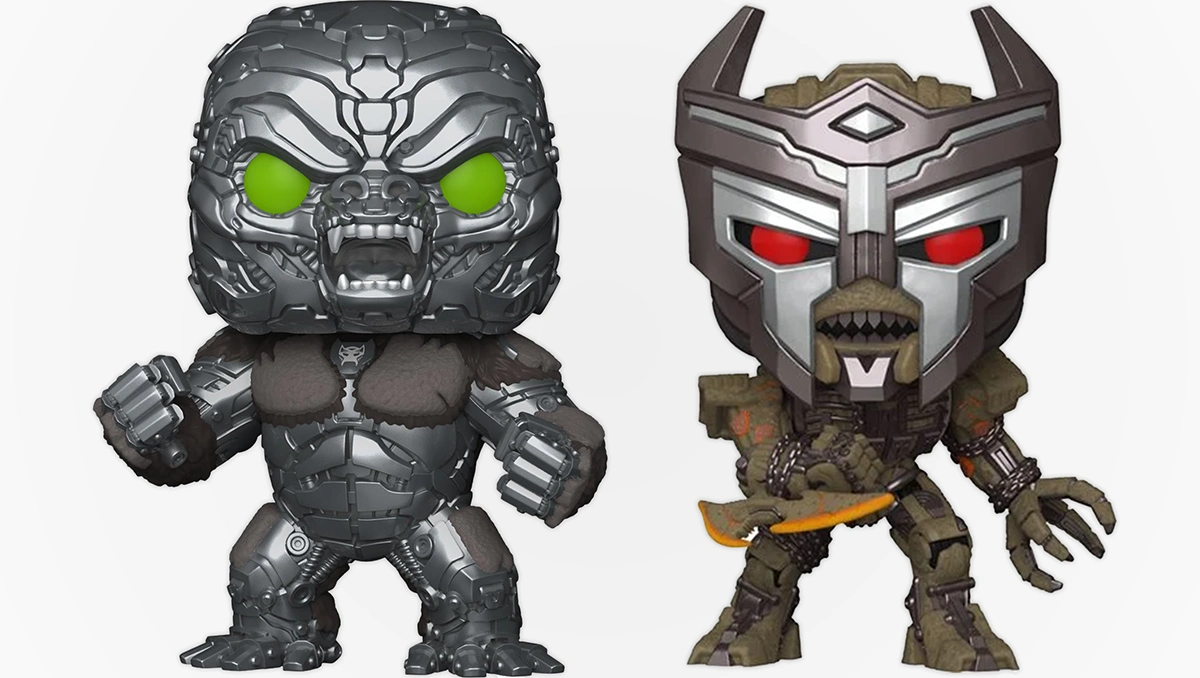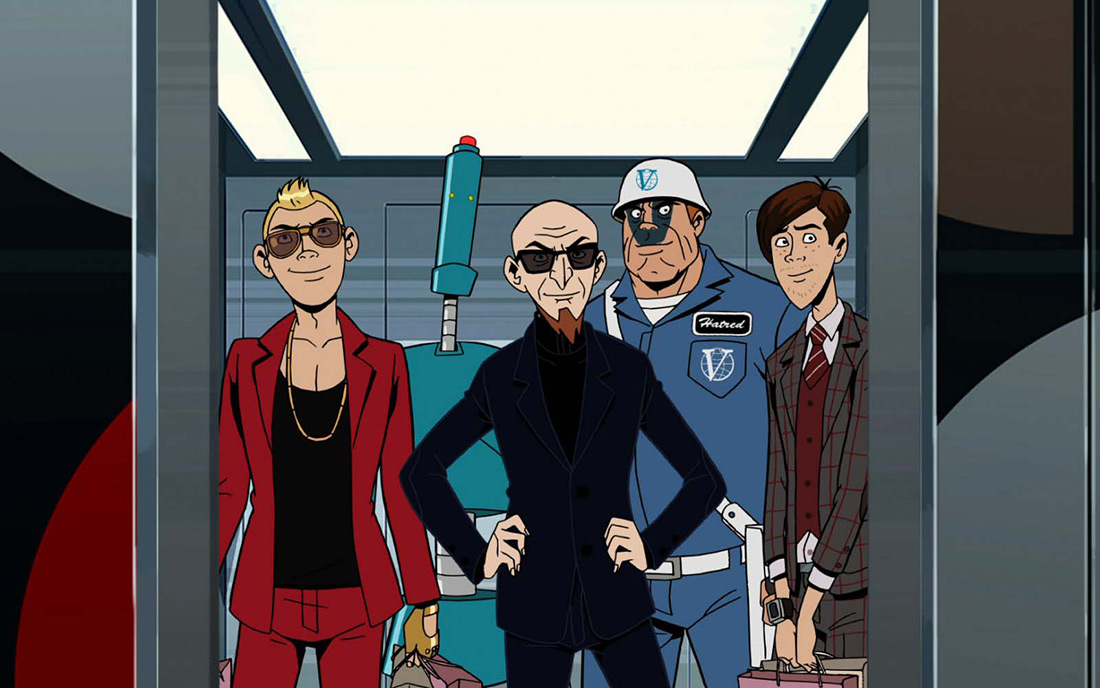Episode Review of “Assisted Suicide”
Assisted Suicide takes the Ventureverse out of the realm of the subtle Freudian slip and into the overt world of the three-part clinical Freudian explanation of human consciousness. The craftsmanship of this episode is thoroughly marvelous; it successfully inserts Freudian themes into each storyline contained within.
Within the compound, a strange and varied assortment of father-figures attempt to save the day by different means of might and magic. The tension between Brock and Sgt. Hatred is growing thicker, both driven by an affection/attachment for the boys and a desire to wrest some kind of usefulness for their continued presence. Meanwhile, the boys themselves prove ineffective as anchoring totems for Orpheus’ magical efforts; their father’s love for them is apparently not strong enough to allow for psychic entry. The tone of these scenes could be called Oedipal (perhaps swaying more toward the resolution of the Oedipal complex which supposedly results in identification of the child with the same-sexed parent) based on the nature of the fixation of father-figures, but the dynamic is reversed; it is the father-figures competing for the position as responsible party. On a non-Freudian note, an excellent piece of self-referencing that happens within this particular piece of the story is the theme of magic vs. science which continually keeps Rusty and Orpheus at odds; The Monarch entered Rusty’s mind through the means of a machine, but Orpheus went into his mind on a rescue mission using enchantments.
Within the cocoon, Freudian flirtations lead to frisky flings. The kiss between Sheila and Gary has obviously been building for a long time. The id is easily observable; the desire for sex and pleasure push aside common-sense. Directly after their kiss as the Monarch wakes up, there is a denial of their actions. The superego is thought to be a moralizing behavioral pattern, an explanation of feelings of guilt for misconduct, among other admonishments.
Within Rusty’s mind, led by Billy Eros-boy and Pete Thanatos we encounter the manifestations of the triad of consciousness. Freudian psychology tends to use classical Greek mythology as personality archetypes, and while Eros and Thanatos are accepted to be divisions of the id, the episode took this mythology theme a step further in the portrayal of the id and the ego.
The id, an unconscious seeker of pleasure, is essentially portrayed as Dionysus in the body of a teenage Rusty. A person’s id would not necessarily demand carnal tribute, but Dionysus certainly would. And it is with a great Dionysian pleasure that I must triumphantly say CALLED IT! Billy and Pete made out! I know, it wasn’t really Billy and Pete, but for all intents and purposes, can we just say I totally nailed that? This is the id paragraph, tell me I’m right, and we can move on.
The ego at first glance was Rusty as a haggard and failed Gepetto, but contained within his broadened shoulders, fuller beard and furious dedication to craft, dwelt Hephaestus. And, just as Zeus gave Aphrodite to Hephaestus, Orpheus gave the id’s harem of women to Rusty’s ego.
It was at this point in the episode that the pacing started to feel somewhat rushed. There wasn’t enough time for the superego to do much. I was unable to discern whether he was an Apollonian figure, which makes sense from a Freudian standpoint, as the Apollonian figure generally works against the Dionysian, just as the superego is in conflict with the id, or a Zeus figure, as his physicality was a heroic-looking manifestation closely resembling Jonas Sr., the god-like father-figure. His appearance was too brief for me to figure it out.
The very last (albeit non-Freudian) mythology reference I noticed concerned Orpheus; in a parallel to his namesake, Orpheus attempted to rescue a soul from limbo. He was very nearly successful, rising to each challenge that he met with courage and triumph. In the end, however, he met with failure, just as the original Orpheus turned around at the last second, only to see Eurydice melt back into the realm of Hades. Lucky for Dr. O, however, Rusty had other means of returning to reality.
In a similar fashion to the end of The Diving Bell Vs. The Butter-Glider, an out-of-action Rusty was eventually rescued from the clutches of the Monarch via deus ex machina; the hoards of zombie brothers that haunted Rusty’s mind overwhelmed the Monarch and forced him out. Once awake, Rusty surprisingly took charge of the situation.
Orpheus raised concern that Rusty would become totally unhinged by the devastation to his mindscape, but the opening of all those doors seems to have done Rusty a world of good. Being forced to deal with his traumatizing memories rather than repress them appears to have loosened-up the Doctor in a way that almost looks like healthy coping. Thanks, Freud!
— Lola Wickerman
Review by Lola Wickerman, Junior Writer – The Venture Bros. Blog




